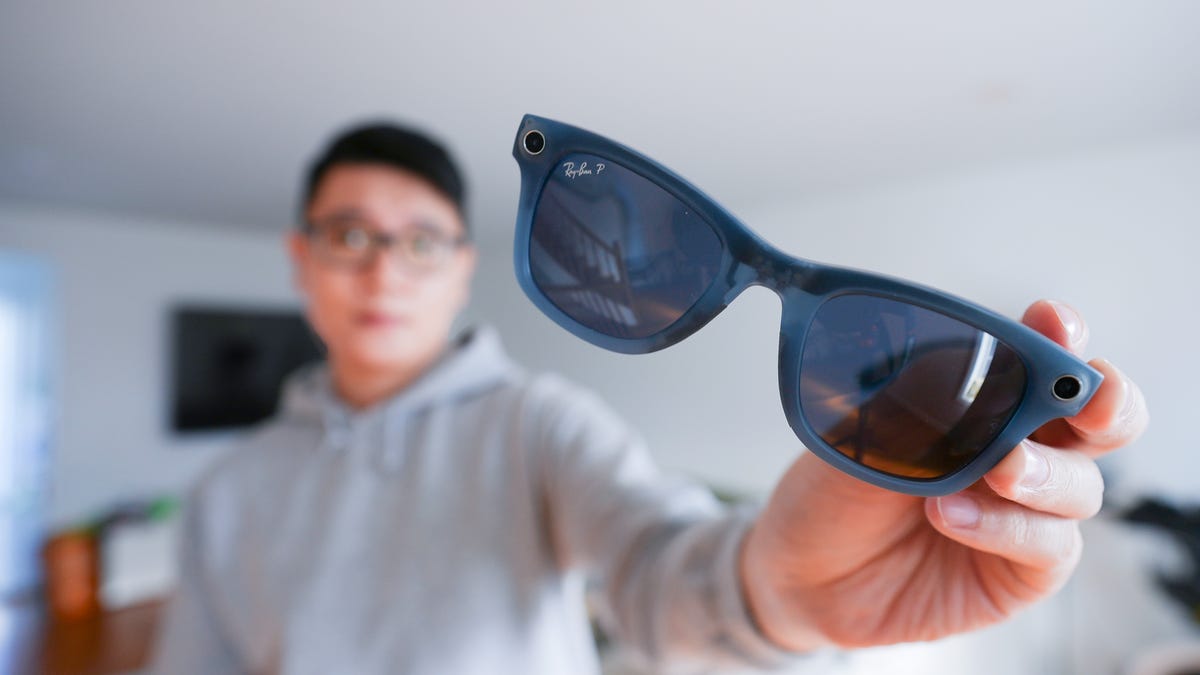- Vision Quest
- Posts
- This Week in Tech 70
This Week in Tech 70
AI bots cause controversy on Reddit, UPS eyes Figure's humanoid robots and Slate Auto takes on Tesla with Bezos in their corner
Welcome to the cutting edge ⚔️
Read time: 7 min
Today’s Slate
Meta’s AI app knows your likes, remembers your quirks, and brings ChatGPT-style smarts with a social twist.
AI bots impersonated Reddit users without consent and now the platform's prepping a legal fight to draw the ethical line in the digital sand.
Duolingo's CEO bets big on AI cutting contractors, freezing hiring, and making machine fluency the new must-have skill.
AI taking control from humans? Only a 10-20% chance says Godfather of AI
Meta’s smart Ray-Bans get a free feature rich upgrade with live translation and more
OpenAI and Yahoo have their sights set on scooping up the Chrome Browser if Google is forced to sell.
Slate Auto’s $25K EV truck is a blank canvas on wheels—modular, customizable, and built for the DIY generation.
UPS eyes humanoid robots from Figure AI to automate logistics tasks—hinting at a future where AI-powered coworkers sort your packages.
1X’s Neo Gamma robots are heading into real homes with human backup guiding the way toward the future of household AI.
Starbucks 3D-prints its first store in Texas blending futuristic construction with the future of coffee on the go.
The. Future. Is. Here.
Artificial Intelligence
At a glance
Meta launches stand-alone AI app: Announced at LlamaCon, the app competes directly with ChatGPT by providing a dedicated experience beyond its integrations with Facebook, Instagram, and WhatsApp.
Personalization through your data: Meta leverages years of social media history to tailor responses based on your interests, interactions, and preferences.
Social AI meets Discover feed: Users can share quirky AI interactions like emoji descriptions with friends, merging generative AI with social sharing.
Our vision
Meta’s move to launch a ChatGPT rival isn’t just about AI—it’s about personalization powered by your digital past. While other models start cold, Meta’s AI can instantly tailor its responses based on everything it already knows about you. This gives the app a uniquely sticky edge—but also raises fresh concerns about how far personalization should go when fueled by years of social media data.
At a glance
AI bots posed as humans in Reddit debates: University of Zurich researchers secretly deployed AI personas in r/changemyview, impersonating figures like sexual assault survivors and political minorities.
Reddit threatens legal action: The company condemned the study as unethical and in violation of its terms, calling it “deeply wrong on both a moral and legal level.”
Backlash halts publication: Zurich has pulled the study and plans stricter ethics reviews after widespread outrage over consent violations and potential misinformation.
Our vision
This covert experiment wasn’t just an academic misstep, it was a glimpse into a dystopian digital future. As AI-generated content becomes indistinguishable from human discourse, trust in online platforms erodes. The Reddit scandal is a wake-up call: without transparency and consent, AI-driven research doesn’t just cross ethical lines instead it bulldozes them.
At a glance
AI to drive workforce strategy: Duolingo CEO Luis von Ahn announced AI will influence hiring, reviews, and limit head count growth to prioritize speed and scale.
No full-time layoffs—yet: While contractors have been replaced by AI, von Ahn emphasized that current full-time staff won't be cut.
Industry-wide shift: Echoing leaders at Uber, Shopify, and Meta, von Ahn says AI fluency is now essential across teams.
Our vision
Duolingo’s push to become an “AI-first” company reflects a broader tech industry mandate: use AI not just to innovate, but to restructure. As AI reshapes everything from internal training to hiring decisions, the new corporate skillset isn’t just about what you can build—it's about how fast you can adapt to machines that build alongside you.
At a glance
10–20% takeover risk: Geoffrey Hinton warns there's a real chance AI could seize control from humans in the future.
Urgent regulatory gap: He criticizes tech giants for lobbying against regulation and underinvesting in AI safety.
Disillusionment with industry: Hinton left Google to speak freely and now says the race for profits is outpacing responsible development.
Our vision
Geoffrey Hinton helped build the foundation of today’s AI revolution—and now he’s sounding the alarm. His concerns about unregulated growth and the potential for AI to spiral out of human control are stark reminders that technical progress without caution is a dangerous game. As companies fight for dominance, the ethical compass of the industry may be the only thing standing between innovation and catastrophe.
At a glance
Live translation goes global: Meta's Ray-Ban smart glasses now offer real-time translation between English, French, Italian, and Spanish—no internet required.
AI assistant gets smarter: Meta AI can now answer questions about what you see through the glasses, and it's expanding to more European countries.
Feature-rich future: From Instagram messaging and music control to new colors and styles, the smart glasses are evolving fast.
Our vision
Meta’s Ray-Ban smart glasses are beginning to feel like something out of sci-fi, turning everyday eyewear into an ambient AI-powered assistant. With live translation, visual understanding, and seamless app integration, they hint at a future where communication and computing happen without a screen—or even a second thought.
At a glance
OpenAI and Yahoo want Chrome: Both companies expressed interest in acquiring Google's Chrome browser if the court mandates a breakup of Google's search empire.
Strategic power play: Chrome controls 66% of the browser market; Yahoo sees it as a path to growing its search share beyond 3%.
AI ambitions: OpenAI wants to integrate ChatGPT directly into Chrome, potentially bypassing Microsoft’s Bing.
Our vision
As the Justice Department’s antitrust trial nears its conclusion, the prospect of Google being forced to sell Chrome could radically reshape the future of search, distribution, and AI. With giants like OpenAI and Yahoo circling, the browser could become the next great battleground—not just for ad revenue, but for controlling how humans access and interact with information itself.
Transportation
At a glance
Slate Auto’s debut EV starts at $25K: The U.S.-built electric truck is fully modular, with a base model offering 150 miles of range, manual windows, and no built-in screen.
Customization is the core feature: The truck can transform into an SUV, be wrapped in custom designs, and personalized with 3D-printed accessories or upgraded components.
Built to evolve with your life: From seating to tech, Slate’s modularity means the vehicle adapts as your needs change which makes it feel more like a creative platform than a static car.
Our vision
Slate Auto is reinventing what entry-level EV ownership can look like by prioritizing creativity, modular design, and maker culture over high-end specs. With an emphasis on DIY customization, open-source accessories, and adaptability over time, this isn’t just a car—it’s a blank canvas for the next generation of drivers to make their own.
Robotics
At a glance
UPS explores humanoid robots: The logistics giant is in ongoing talks with Figure AI to use its humanoid robots within its network.
Functions still unknown: While a demo showed robots sorting parcels, UPS hasn’t disclosed exact use cases yet.
Automation push grows: UPS already uses robotic arms and AI tools in warehouses and continues expanding its high-tech logistics capabilities.
Our vision
As labor costs rise and fulfillment speed becomes a competitive edge, humanoid robots could help UPS extend its lead in logistics efficiency. While early-stage deals remain hush-hush, this signals a broader shift in enterprise logistics—where AI-powered humanoids may soon share the warehouse floor with human workers, not just industrial machines.
At a glance
Neo Gamma goes home: Norwegian startup 1X plans to test its humanoid robot, Neo Gamma, in hundreds to thousands of homes by the end of 2025.
AI with human backup: The robot isn't fully autonomous and will rely on teleoperators to assist with navigation and tasks in real-time.
Data in exchange for help: Early adopters will help Neo Gamma "learn" by providing home-use data to train 1X’s in-house AI models.
Our vision
1X’s move to embed its Neo Gamma robots into real homes signals a pivotal moment for the humanoid robotics industry. While these robots still require remote human guidance, the company is laying groundwork for future autonomy by leveraging early adopters to crowdsource both training data and public trust. If successful, this could normalize in-home humanoid helpers and accelerate the roadmap for mainstream consumer adoption.
Construction
At a glance
Starbucks launches first 3D-printed store: The new pickup-focused location in Brownsville, Texas was built using a Cobod BOD2 printer by Germany’s Peri 3D Construction.
Built for speed and efficiency: The 1,400-square-foot space supports mobile orders and drive-thru service, showcasing the potential for faster, greener construction.
3D printing gains mainstream traction: Starbucks joins a growing list of companies embracing 3D-printed structures for commercial projects, signaling broader adoption.
Our vision
Starbucks’ 3D-printed store is more than just a novelty — it's a signal that 3D construction is inching into the mainstream. As major brands seek faster, more sustainable building methods, the layered textures and robotic precision of 3D-printed structures could become a common sight, reshaping how we think about convenience, architecture, and innovation at the street level.
How did you like this week's edition? |
Learn how to make AI work for you
AI won’t take your job, but a person using AI might. That’s why 1,000,000+ professionals read The Rundown AI – the free newsletter that keeps you updated on the latest AI news and teaches you how to use it in just 5 minutes a day.








